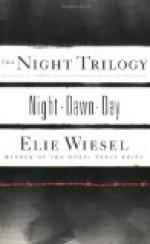But earlier steps had brushed their dewy
path.
From out the shepherd’s cottage
loving eyes
Had recognized the master’s stately
form,
And love-winged steps had borne the joyful
news
That he, the poor man’s advocate
and friend,
The sweet-voiced messenger of peace and
love,
The prince become a beggar for their sake,
So long expected, now at last returns.
From door to door the joyful tidings spread,
And old and young from every cottage came.
The merchant left his wares without a
guard;
The housewife left her pitcher at the
well;
The loom was idle and the anvil still;
The money-changer told his coins alone,
While all the multitude went forth to
meet
Their servant-master and their beggar-prince.
Some brought the garden’s choicest
treasures forth,
Some gathered lotuses from Phalgu’s
stream,
Some climbed the trees to pluck their
varied bloom,
While children gathered every wayside
flower
To strew his way—their lover,
savior, guide.
King Bimbasara from his watch-tower saw
The wild commotion and the moving throng,
And sent swift messengers to learn the
cause.
With winged feet through vacant streets
they flew,
And through the gates and out an avenue
Where aged trees that grew on either side,
Their giant branches interlocked above,
Made nature’s gothic arch and densest
shade,
While gentle breezes, soft as if they
came
From devas’ hovering wings, rustle
the leaves
And strew the way with showers of falling
bloom,
As if they, voiceless, felt the common
joy.
And there they found the city’s
multitudes,
Not as in tumult, armed with clubs and
staves,
And every weapon ready to their hands,
But stretching far on either side the
way,
Their flower-filled hands in humble reverence
joined,
The only sound a murmur, “There
he comes!”
While every eye was turned in loving gaze
Upon a little band in yellow robes
Who now drew near from out the sacred
grove.
The master passed with calm, majestic
grace,
Stately and tall, one arm and shoulder
bare,
With head close shorn and bare unsandaled
feet,
His noble brow, the wonder of his age,
Not clothed in terror like Olympic Jove’s—
For love, not anger, beamed from out those
eyes,
Changing from clearest blue to softest
black,
That seem to show unfathomed depths within,
With tears of holy pity glittering now
For those poor souls come forth to honor
him,
All sheep without a shepherd groping on.
The messengers with reverence let him
pass,
Then hastened back to tell the waiting
king
That he who dwelt so long upon the hill,
The prince who stopped the bloody sacrifice,
With other holy rishis had returned,
Whom all received with reverence and joy.
The king with keenest pleasure heard their




